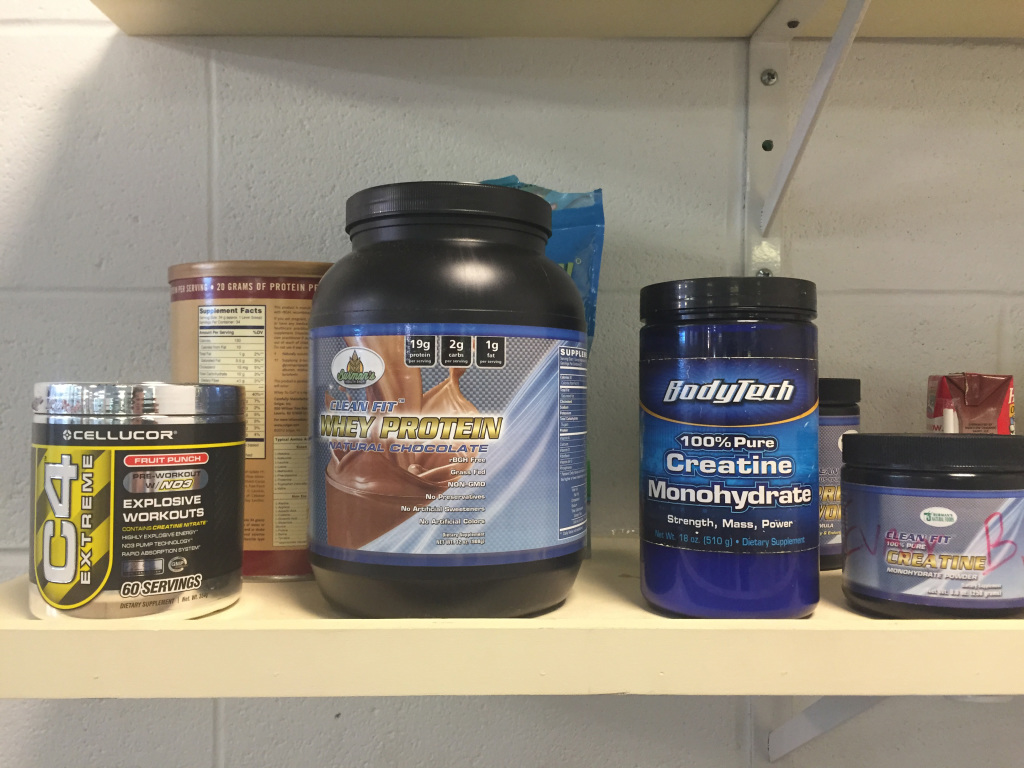Connor Delaney ’17, Cole Testaiuti ‘ 16: At EA, strength and conditioning are big parts of having success on the field, the court, in the pool, and anywhere else in competition. As athletes prepare for their season, getting in the weight room is a big part of this training. There are good things and bad things about the weight room, but one controversial aspect of this topic is the use of legal supplements. A supplement is defined as a product intended for ingestion that contains a “dietary ingredient” intended to add further nutritional value to supplement the diet. The supplements, that many of our EA athletes use, help with muscle growth and recovery of sore muscles. The use of these supplements, however, is a highly discussed topic and is one that has many varying perspectives. Some athletes that use dietary supplements are happy with the results they have gotten from their use. Tyler Will ‘16, a varsity football and lacrosse player who will go on to play Lacrosse in college at Penn State is an example of this. Will uses some dietary supplements to go along with his lifting regimen. When asked what supplements he uses, Will said, “Before I work out, I use creatine, glutamine, and beta-alanine. Immediately after I work out I use whey protein.” Creatine is a nitrogenous organic acid that occurs naturally in vertebrates and helps to supply energy to all cells in the body, primarily muscle. Creatine is often used before in order to help the athlete work harder throughout the workout. Glutamine is an amino acid found in muscles that helps with metabolism; this helps the body burn more as they exercise. Beta-alanine, when ingested, is converted into carnosine, which will then serve the purpose of increasing your stamina, strength as well as muscle development. Each of these supplements aids the person with muscle development and stamina, which is essential for an athlete’s pre-workout. Post-workout requires different supplements. Will said he uses, “Whey protein powder after he works out.” Another athlete, Drew Silvera ‘16, who plays varsity lacrosse, said he uses, “Burman’s Health Shop’s protein after workouts. Burman’s Health Shop is known for holding a standard of producing natural and healthier protein.

Photo Courtesy of Samantha Ciardi ’15
Burman’s Health Shop’s protein is something that is promoted by head trainer, Steve Musacchio. Although there are certain supplements used in the EA weightroom that Musacchio has different opinions on. With regards to the use of supplements, Musacchio said that they are “not needed, but all natural protein powders can be convenient to help with calories and adequate protein.” It is for this reason Mussachio suggests Burman’s Health Shop for protein. Also, when asked what one major problem for high school students is when it comes to supplements, he stated, “They believe the billion dollar marketing services and trainers and older brothers who aren’t educated giving them advice about how and when to use supplements.” Coming from a trained professional, this advice could be beneficial to some new lifters who want to get bigger and stronger. Musacchio recommended, “Calories exceeding metabolism. For example, lots of whole foods like chicken, beans, potatoes, green beans, nuts, avocado, dark greens, etc.” to inexperienced athletes looking to gain muscle mass.
Will and Silvera recommend other supplements. They prefer Creatine before workouts and Whey protein for after. “[Whey Protein Powder] is essential for building muscle and getting better results from working out,” Will commented. For students, there may be drawbacks from using supplements but used wisely and combined with proper eating habits, they can help athletes develop.